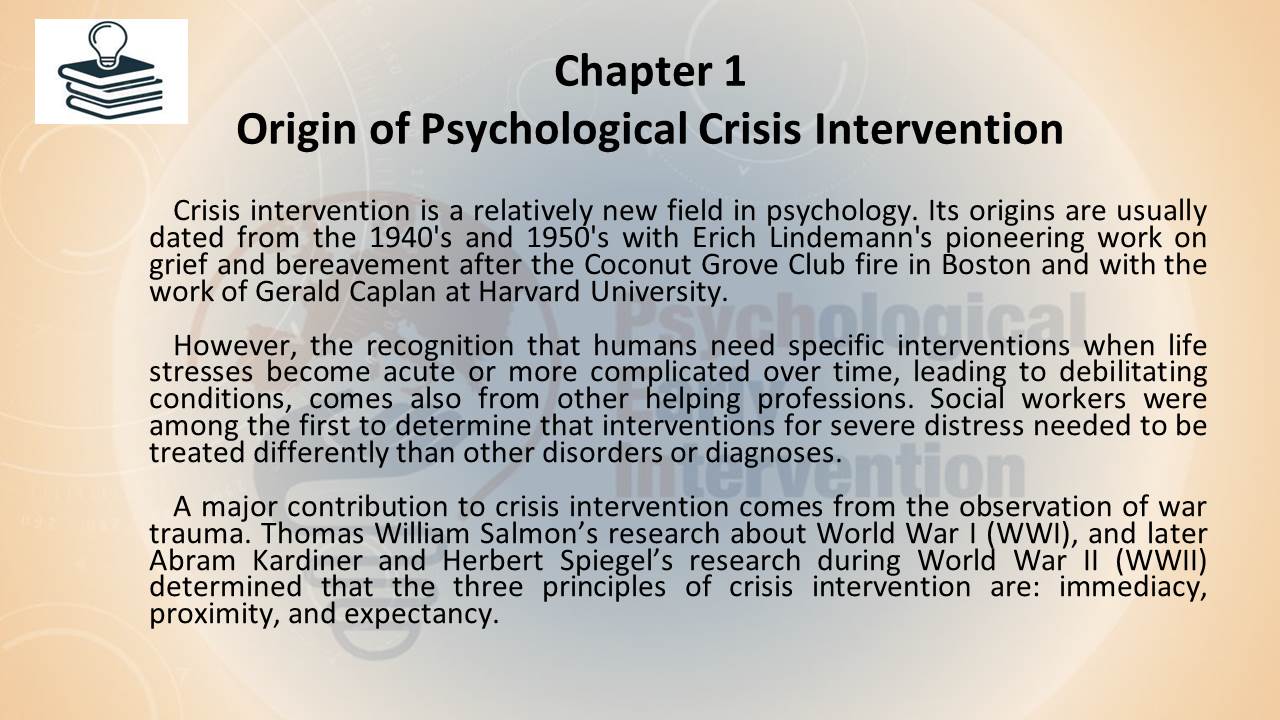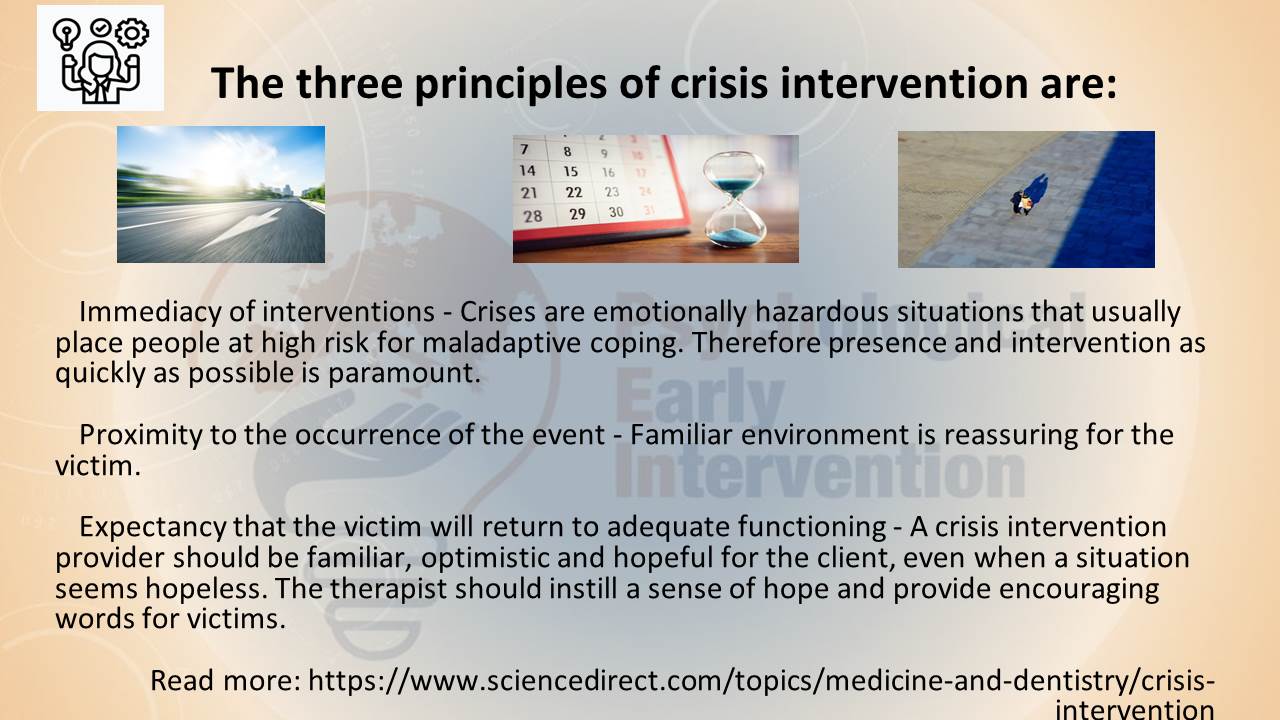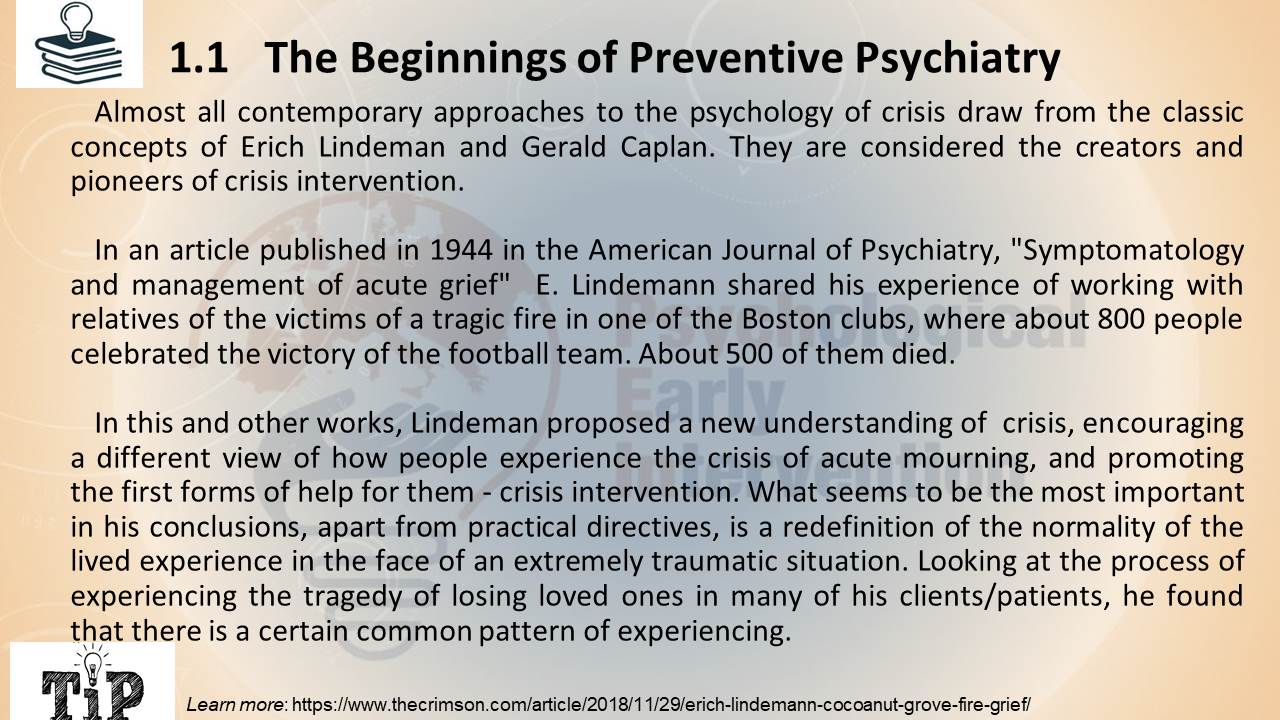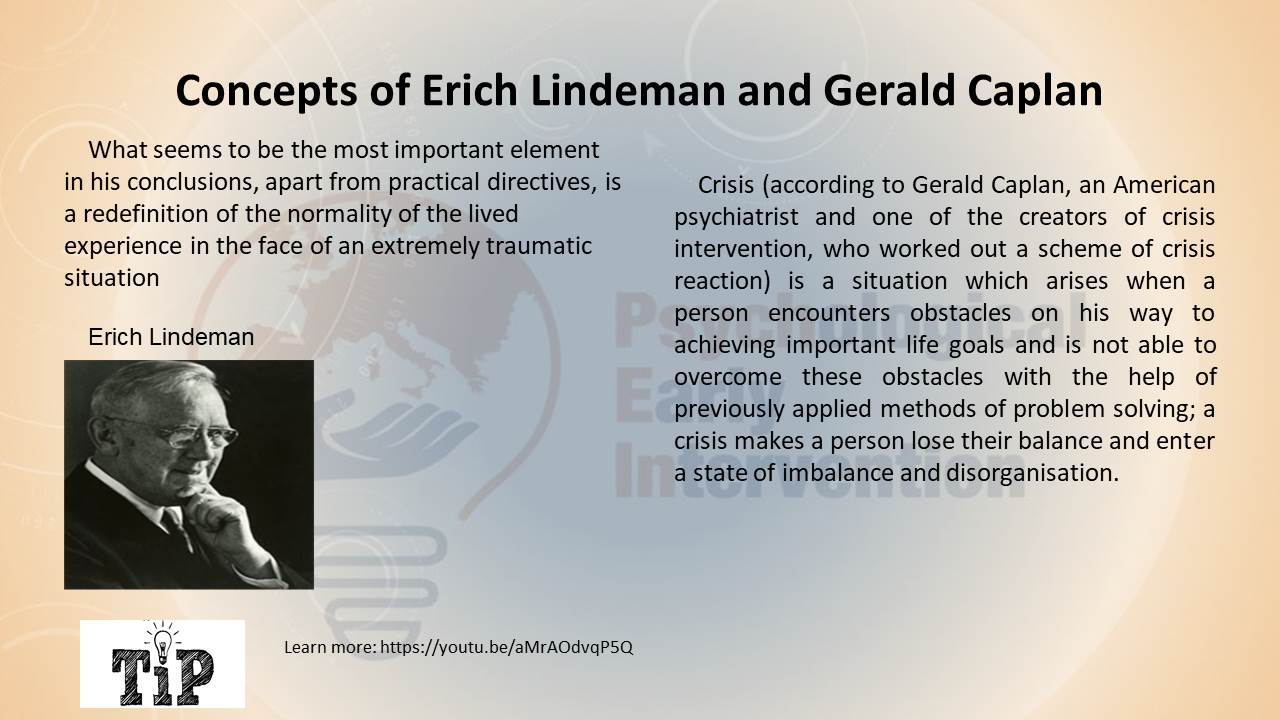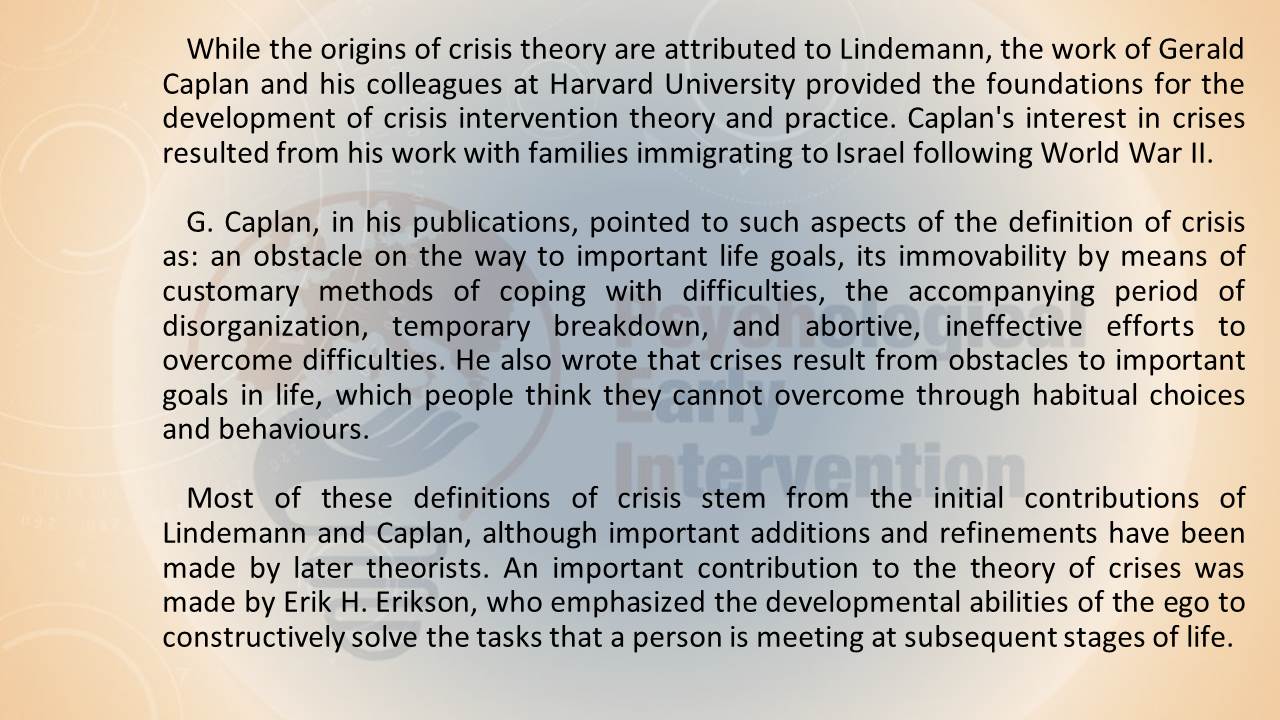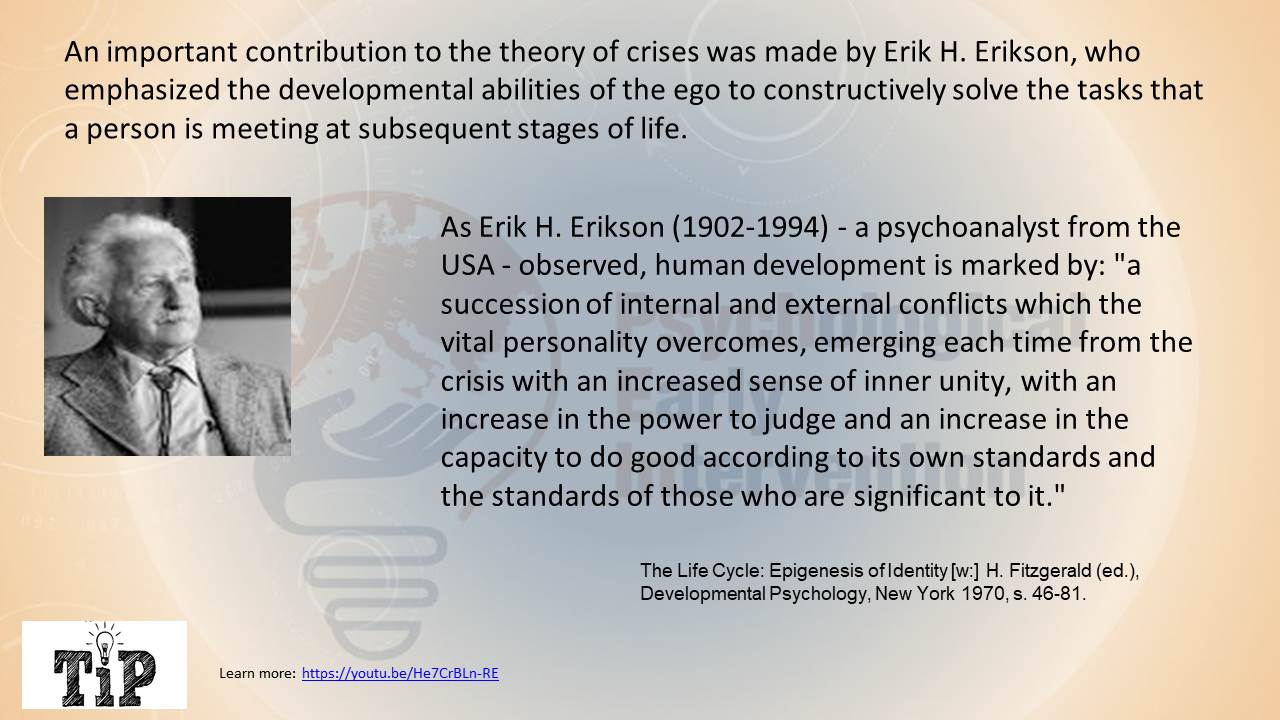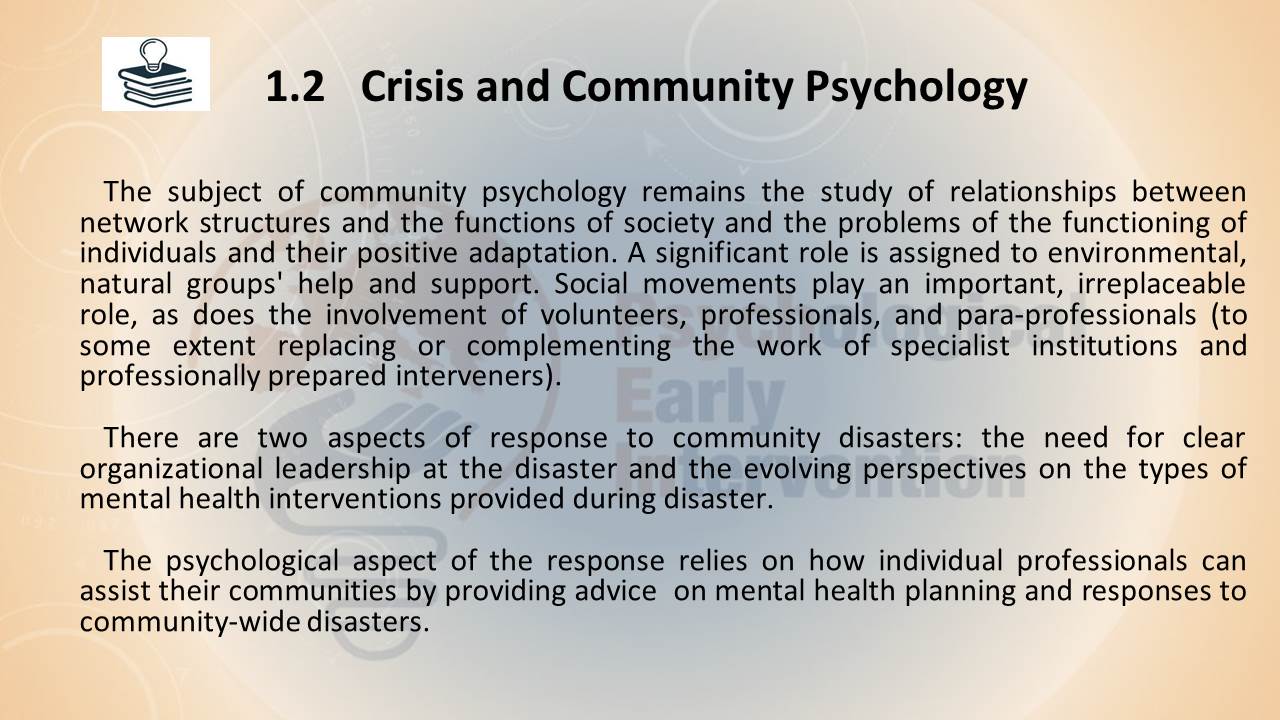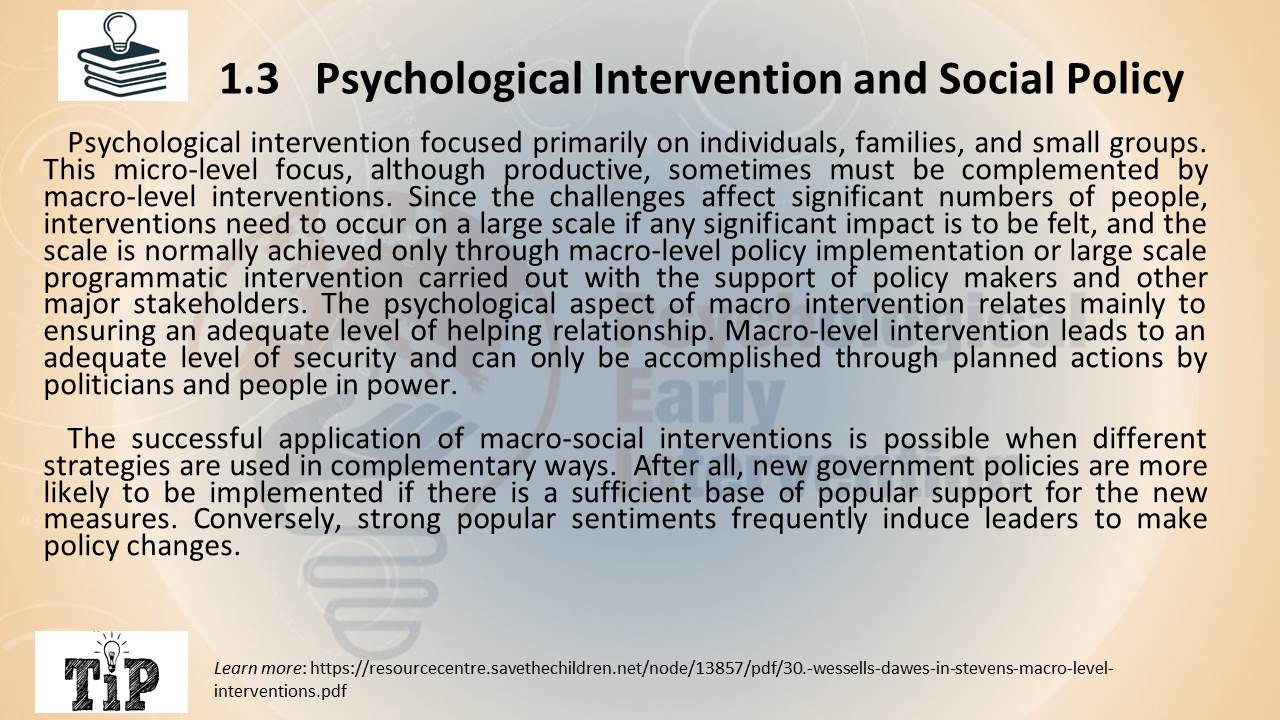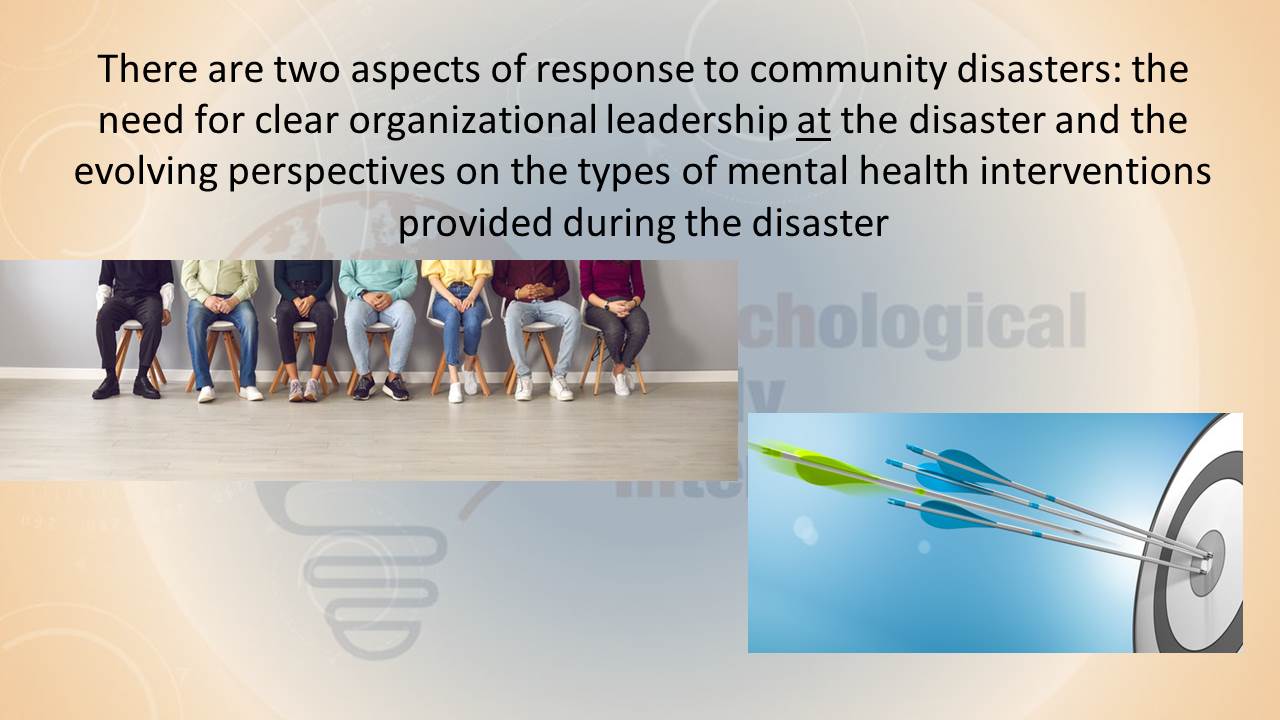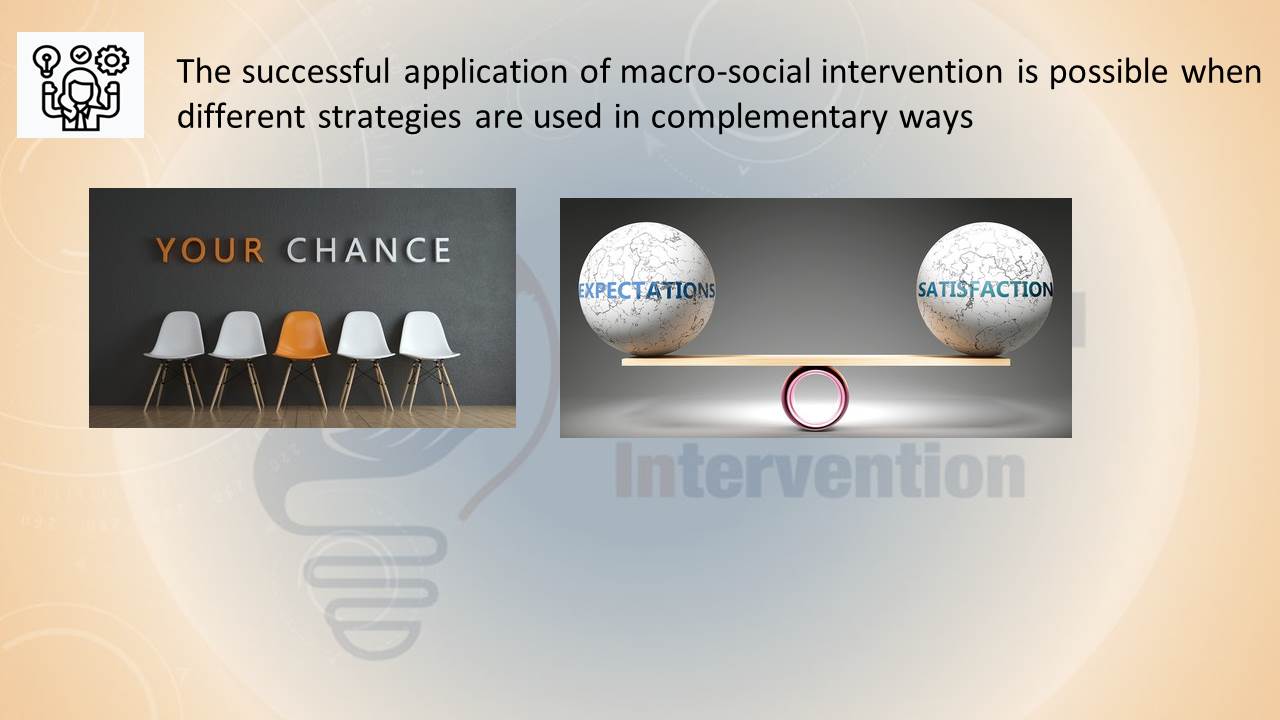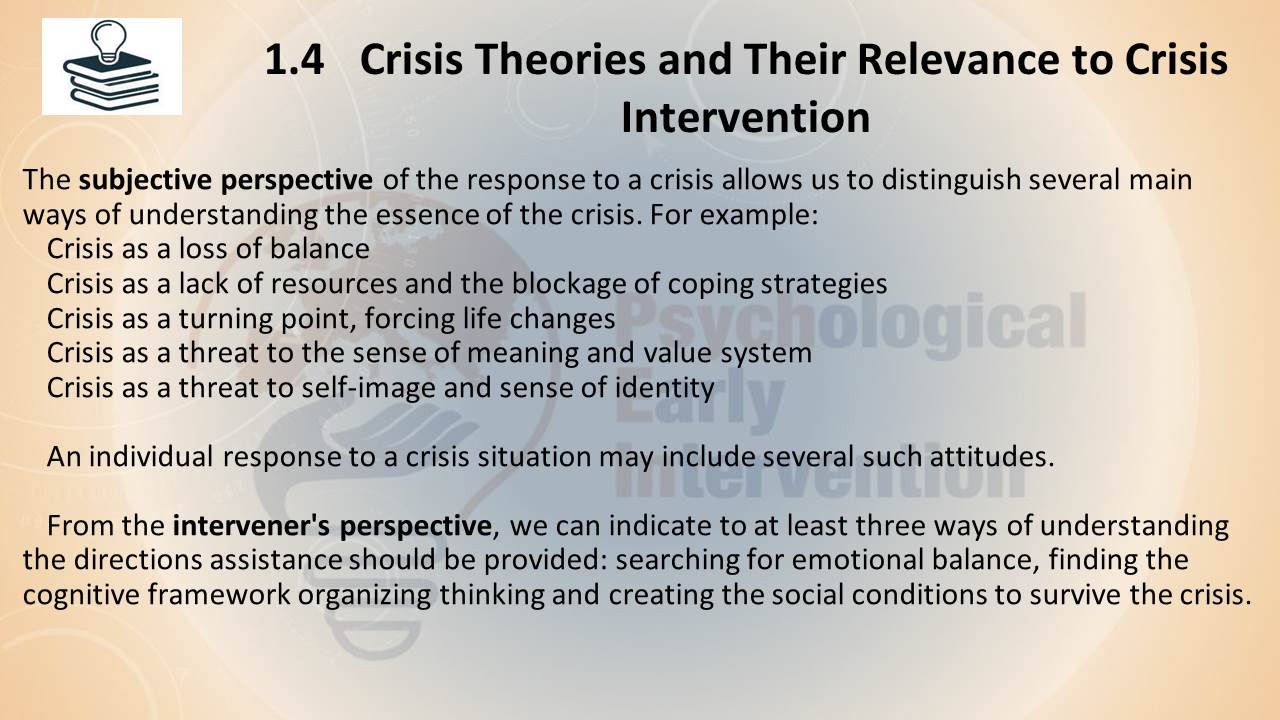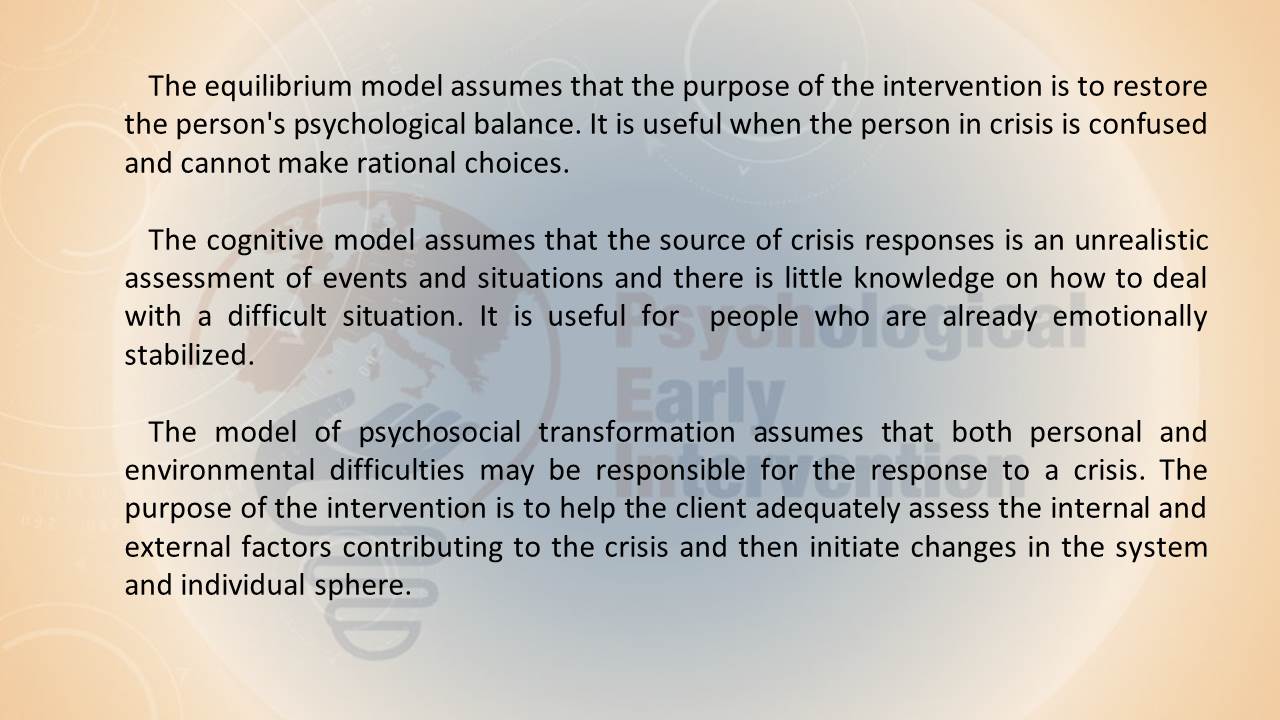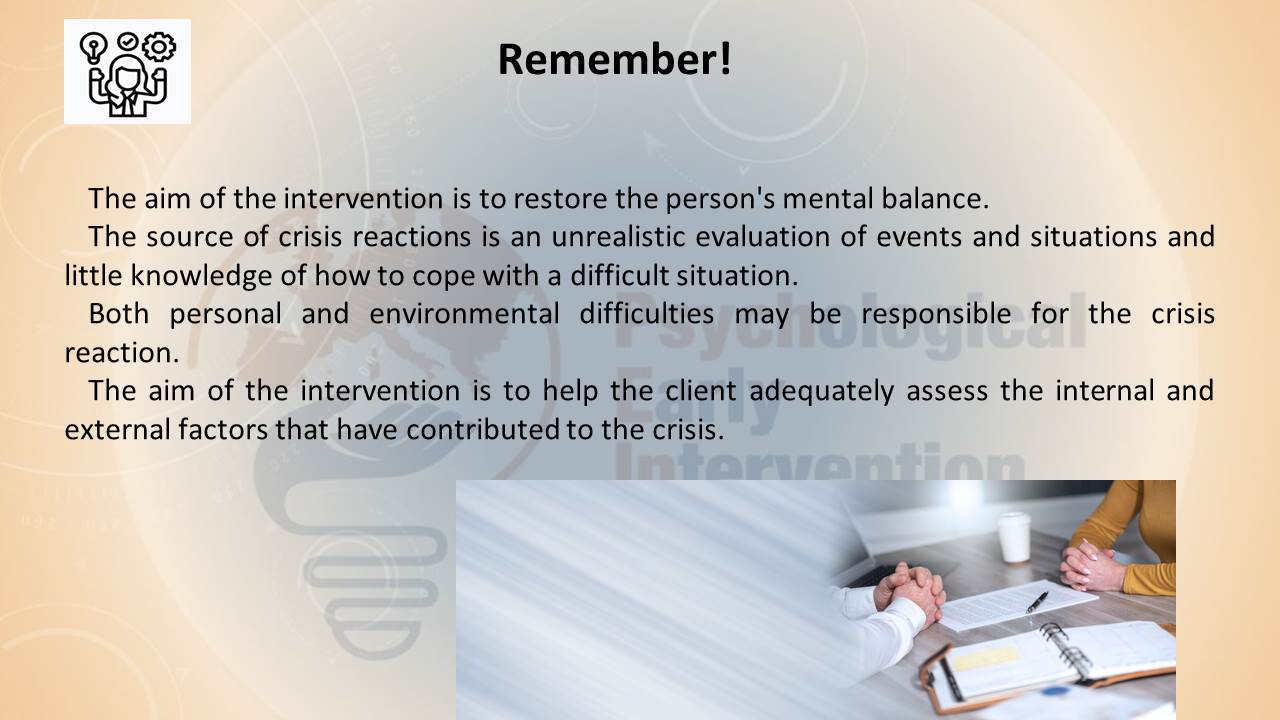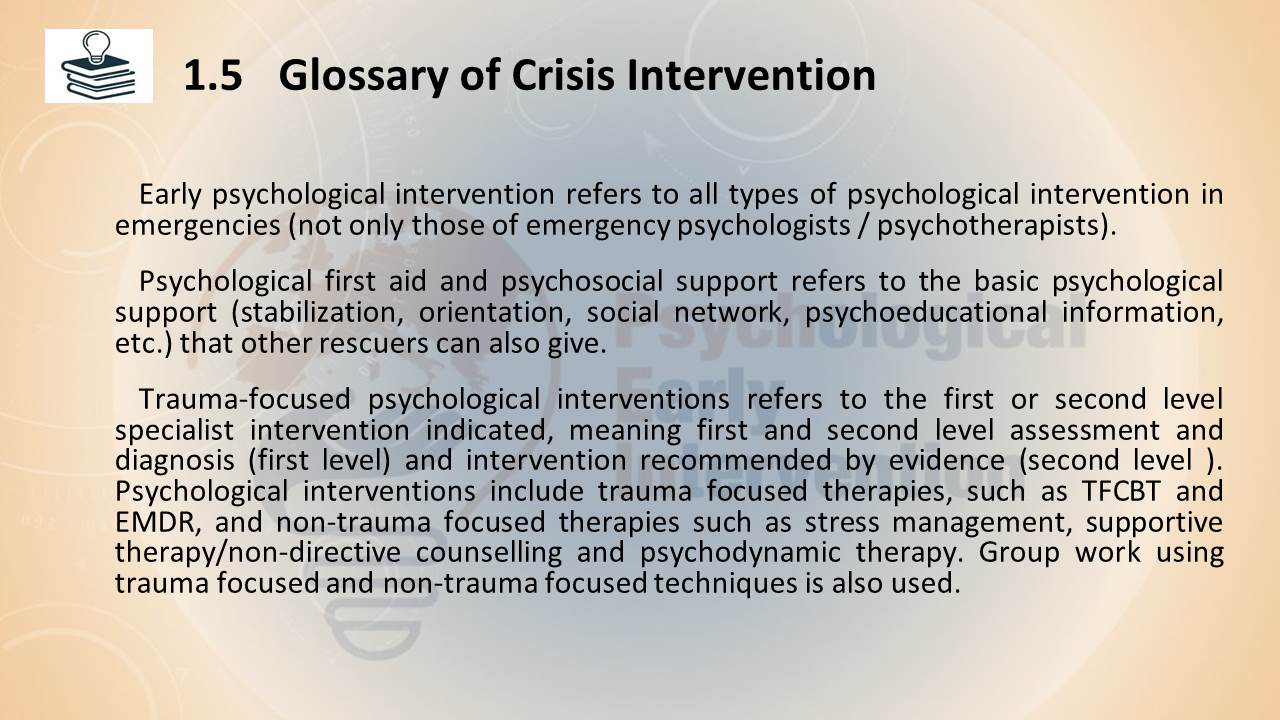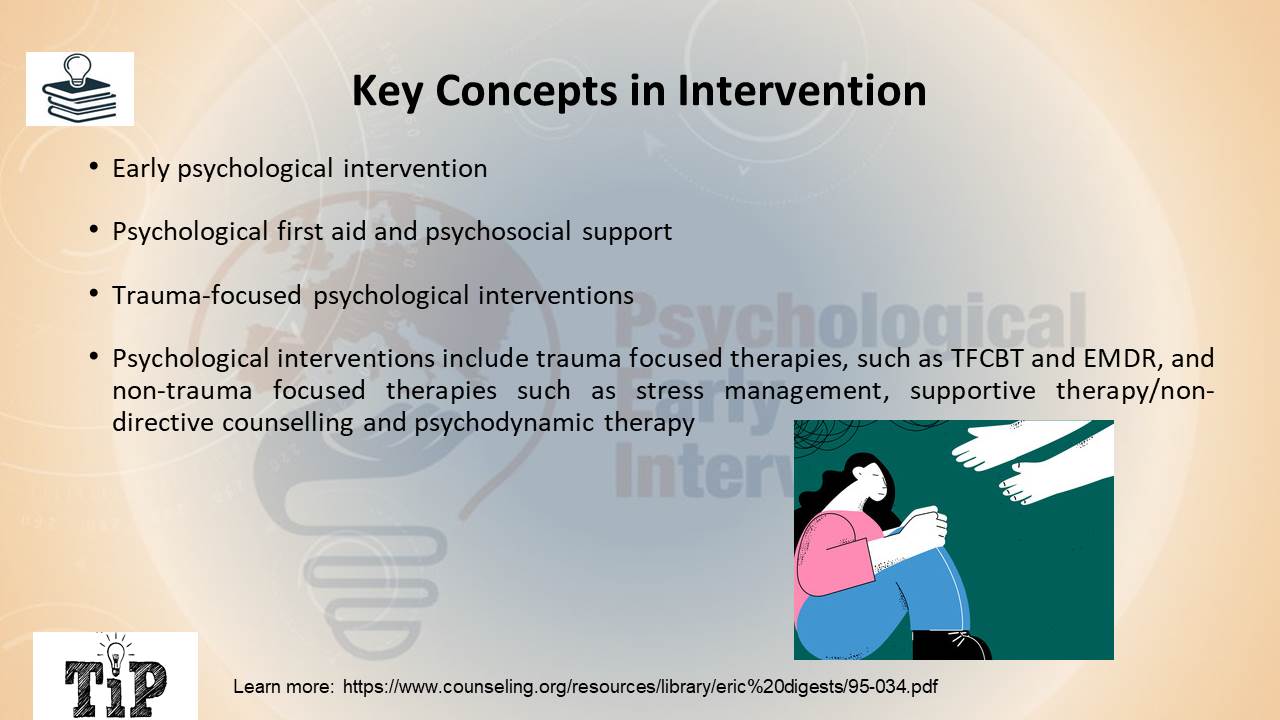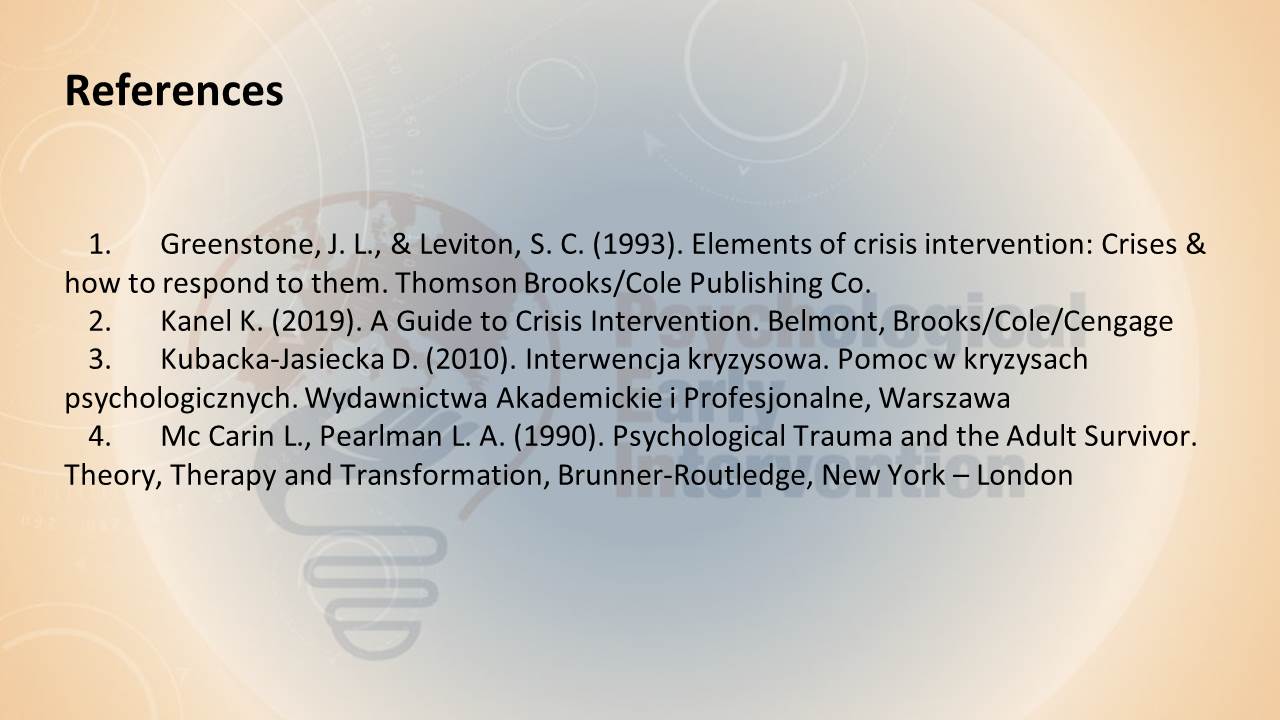Crisis intervention is a relatively new field in psychology. Its origins are usually dated in the 1940's and 1950's with Erich Lindemann's pioneering work on grief and bereavement after the Coconut Grove Club fire in Boston and with the work of Gerald Caplan at Harvard University.
However, a recognition that humans need specific interventions when life stresses become acute or compounded over time leading to debilitating conditions comes also from other helping professions. Social workers were among the first to determine the interventions for severe distress needed to be treated differently than other disorders or diagnoses.
A major contribution to crisis intervention comes from observation of war trauma. Thomas William Salmon’s research about World War I (WWI), and later Abram Kardiner and Herbert Spiegel’s research during World War II (WWII) determined that the three principles of crisis intervention are: immediacy, proximity, and expectancy.













